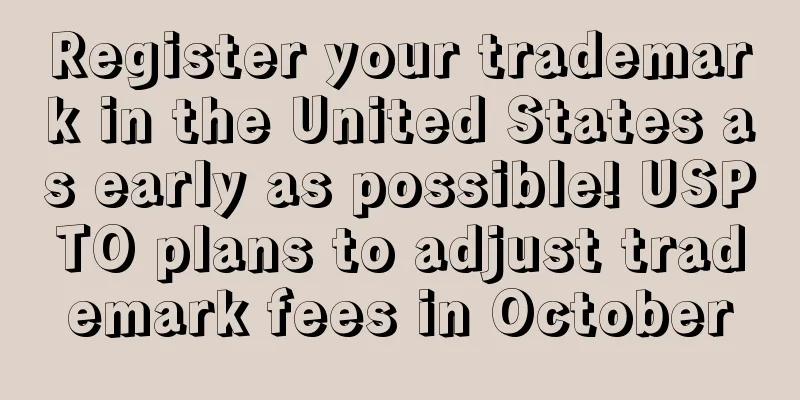|
In 2024, the ever-difficult logistics problem has once again become a major stumbling block for cross-border sellers in their preparations for the peak season. According to recent industry news, in addition to rising freight rates, the U.S. Customs inspection rate has also skyrocketed, with low-value goods from China becoming the focus of inspection. It is learned that according to foreign media reports, in recent days, with the surge in customs inspection rates in various places, relevant US departments are tightening their review of the "small exemption" import policy and have taken a series of customs rectification measures for this purpose. According to industry sources, many customs clearance companies have been forced to suspend their T86 customs clearance business due to this . A large amount of goods are stranded at U.S. customs, affecting many cross-border sellers and multiple Chinese cross-border e-commerce platforms. Among them, according to the announcement of a large domestic international freight forwarder, a notice issued by the U.S. Customs and Border Protection (CBP) stated that the company's U.S. T86 customs clearance business was suspended on May 27, 2024, and will last for at least 90 days until August 24. It is understood that the full name of T86 customs clearance is "Type 86 customs clearance", which is under Section 321 of the U.S. Customs and Border Protection Regulations and is a type of customs declaration for goods imported into the U.S. According to this customs clearance regulation, low-value goods (no more than US$800) can usually pass customs quickly and are exempt from tariffs and taxes. In recent years, not only have a large number of sellers turned to direct mail parcels to exempt tariffs and reduce product costs under the influence of the US tariff increase policy, but many products exported by China's cross-border e-commerce platforms are also included in the low-value range (no more than US$800) and are exempt from tariffs, thus achieving rapid expansion in the US e-commerce market with the advantage of "extreme cost-effectiveness". Therefore, after the news spread in the cross-border circle, it triggered a wave of heated discussions. Some sellers believe that these companies whose T86 customs clearance business has been suspended are likely to have risks of violations such as concealment, underreporting and under-declaration , and therefore they will be affected when the US Customs tightens T86 customs clearance inspections. However, according to an announcement from a large domestic international freight forwarder, its compliance rate was very high, and CBP’s notice came less than seven days before the suspension took effect, which resulted in it having no opportunity to address any potential deficiencies with CBP and having its T86 customs clearance business suspended. Another group of sellers said that the main reason why the United States has increased its crackdown on "small exemption" imported goods is that the rapid development of Chinese cross-border e-commerce platforms, which mainly export low-value goods, in recent years has affected the domestic e-commerce business in the United States . Therefore, the United States will increase inspections on related products. However, some sellers have revealed that the so-called "thousands of tons of goods inspected" are actually goods whose customs clearance has been slowed down due to the recent detection of banned goods by U.S. Customs , rather than the inspections made by the United States on Chinese cross-border small packages as rumored online, and they are not necessarily cross-border products from China. As of press time, the specific situation of these goods inspected by U.S. Customs is still unknown. But there is no doubt that in recent years, the U.S. Customs has been increasing its inspection efforts on low-value goods. Not only cross-border e-commerce platforms, but also sellers need to pay close attention to the potential impact of this change on cross-border e-commerce business and adjust corresponding strategies in a timely manner. In fact, the United States has long been paying attention to cross-border products with "small exemptions". In February 2022, the U.S. House of Representatives passed the America COMPETES Act of 2022 with a high vote. According to the Import Security and Fairness Act , the United States will prevent "non-market economy status regions/countries" from obtaining tax "minimum thresholds" to avoid "unfair" competition. That is, under this bill, Chinese cross-border e-commerce companies will lose the qualification of "low-value goods (no more than US$800) entering the United States will be exempt from taxes and fees." Although the bill was not approved in 2022, some U.S. senators reiterated the bill in June 2023 and marked the tax-free eligibility of the "small exemption" policy that would limit specific importing countries , such as China, Russia and non-market economies. In April this year, foreign media also reported that the U.S. Customs will strengthen import inspections on low-value packages because local companies are threatened by competition from large quantities of "small exemption" goods imported from China. On April 19, local time, the U.S. House of Representatives Ways and Means Committee approved the Ending China's Abuse of "Small Exemptions" Rule Act . The bill not only adjusted the rules for reviewing the entry of Chinese goods with "small exemptions", further raised the exemption threshold and barriers, but also established new penalty measures for violations , such as "a fine of $5,000 for the first offense and double the fine for subsequent offenses". Many sellers believe that the T86 business of several customs clearance agencies was investigated and shut down due to the impact of this bill. It is understood that in recent years, the number of small packages exported from China to the United States has exploded. On the one hand, it is affected by the US tariff policy, and on the other hand, Chinese cross-border e-commerce platforms are using "low-price sharp swords" to tear open the US e-commerce market. Customs data show that in 2023 alone, about 1 billion low-value packages entered the United States, of which goods from Chinese cross-border e-commerce platforms accounted for about one-third of such packages. It is not difficult to predict that as the United States further strengthens its review of imported goods under the "small exemption" policy, not only will cross-border e-commerce platforms be affected to a certain extent, but related cross-border sellers will also need to face operational risks brought about by policy changes, such as customs clearance delays, increased costs, and logistics delays . It is also worth mentioning that, in addition to the United States, other regions are also increasing customs inspections, which means that the main theme of the cross-border e-commerce industry in the future will continue to move towards compliance. I suggest that you pay more attention to relevant policy trends and adjust your business strategies in a timely manner to adapt to the new market environment. What do you think about this? Welcome to discuss in the comment area~
|










